HANDS AI: Transforming Casework with Smart Automation
The Special Supplemental Nutrition Program for Women, Infants, and Children (WIC) is a government initiative that serves millions of families across the country, providing critical nutrition assistance and healthcare support.
CMA Global, a leader in IT infrastructure, launched an internal startup to develop Emma—an AI-powered assistant designed to improve case management. As part of their broader initiative, they built HANDS AI, an enterprise platform supporting WIC programs across six U.S. states by streamlining workflows and surfacing critical insights. We partnered with CMA’s internal team to lead the end-to-end design of Emma, ensuring a seamless, accessible, and productivity-boosting experience within the HANDS AI ecosystem.

Our Primary Role
Design Leadership
Took full ownership of the design process, ensuring alignment, on-time delivery, and a cohesive user experience.
Human-Centered Approach
Led extensive research and usability testing to understand user pain points and identify areas where the AI could deliver real value.
Cross-Functional Delivery
Facilitated collaboration between design, engineering, and AI teams to ensure seamless integration of AI capabilities into the platform’s core features.
Project Impact
$250K
Projected Reduction in Administrative Overhead Costs
45%
Increase in Documentation Accuracy
40%
Reduction in Manual Data Entry Time
68%
Percentage of Missing Records Flagged
30%
Faster Case Processing
60%
Reduction in Certification Errors
20%
Faster Benefit Processing
90%
Faster Report Generation
The Problem
Intense Bottlenecks in Case Management
WIC caseworkers rely on manual, time-consuming processes to manage thousands of client records, medical histories, and appointments. The outdated system leads to delays, high administrative burdens, and missed critical updates, ultimately affecting families in need.
The Proposed Solution
Human-Centered Automation
An intelligent case management platform that leverages automation and real-time insights to streamline workflows, reduce administrative burdens, and improve decision-making for WIC caseworkers so they can focus on what matters the most – supporting families and ensuring timely access to critical services.


Design Process

User Research
Understanding Pain, Stress, and Real-World Challenges
We conducted 10+ in-depth interviews and 4 contextual inquiry sessions with a diverse group of WIC caseworkers, supervisors, and clinic staff to capture insights into their workflows, mental models, and day-to-day challenges.
Primary User Needs

Ensure faster and more accurate access to clients who require high-priority assistance

Allow professionals to manage data effortlessly and make informed decisions with confidence

Reduce no-shows and improve operational efficiency
“I spend more time fixing errors and hunting for information than actually helping families.”

Maria Lopez Senior Caseworker at Phoenix WIC Clinic
“I can’t tell you how many times I’ve missed a key health indicator because the data is buried or incomplete.”

Dr. Kevin Singh Nutritionist at Denver County Health
“Our no-show rate is out of control, and it’s because our scheduling system is so clunky.”

Janet White Clinic Manager at Tucson WIC Center
“It takes forever to find the right client file, and half the time, I’m not even sure if it’s accurate.”

Derek Thompson Program Supervisor at Maricopa County Public Health
Prototypes
Automating Data Filtering
Emma alleviates the manual burden of searching through large datasets by instantly applying precise filters and surfacing relevant information...
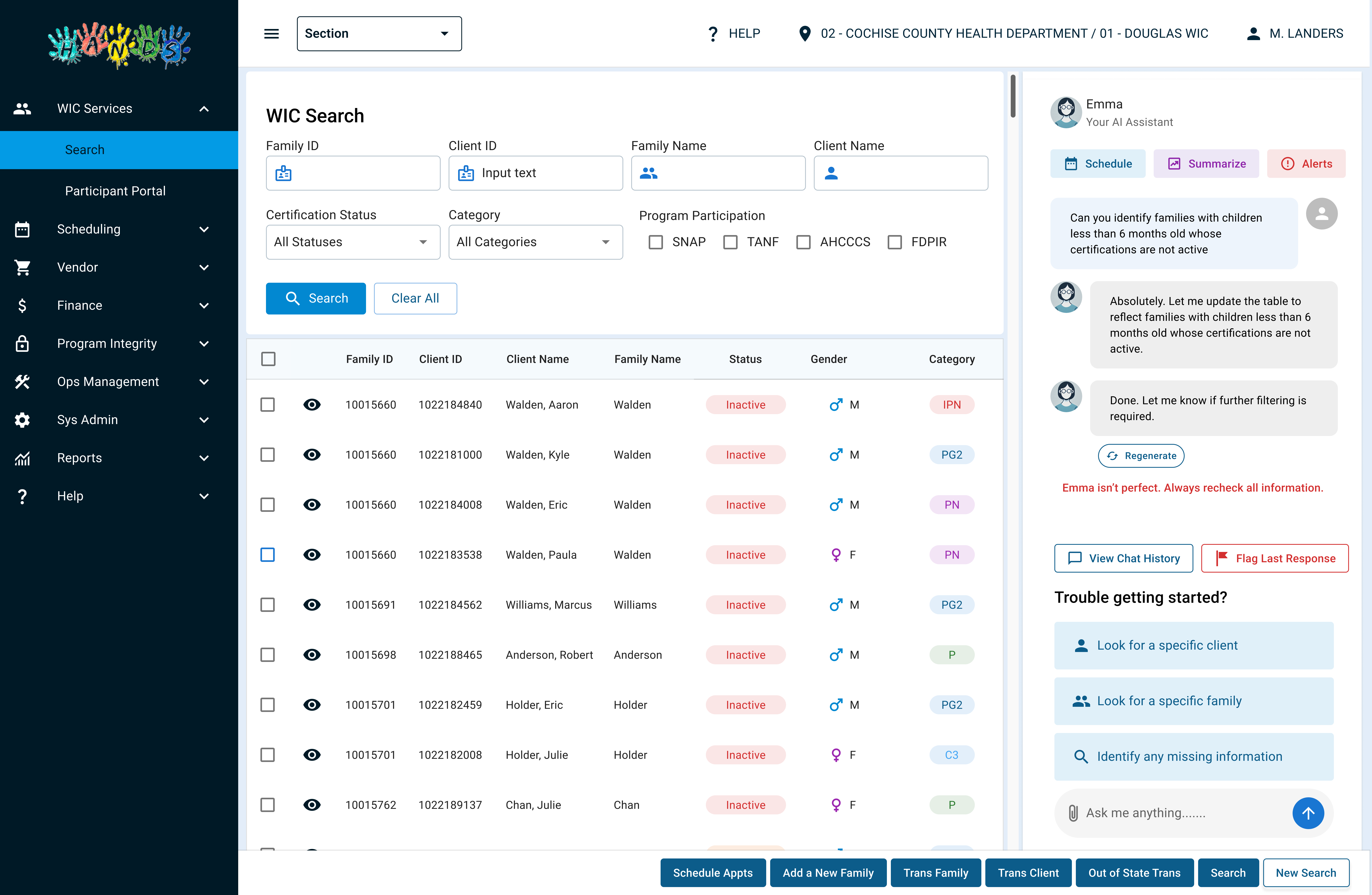
Proactive Health Insights and Risk Monitoring
Emma enhances decision-making by surfacing critical health risks, such as iron deficiency...

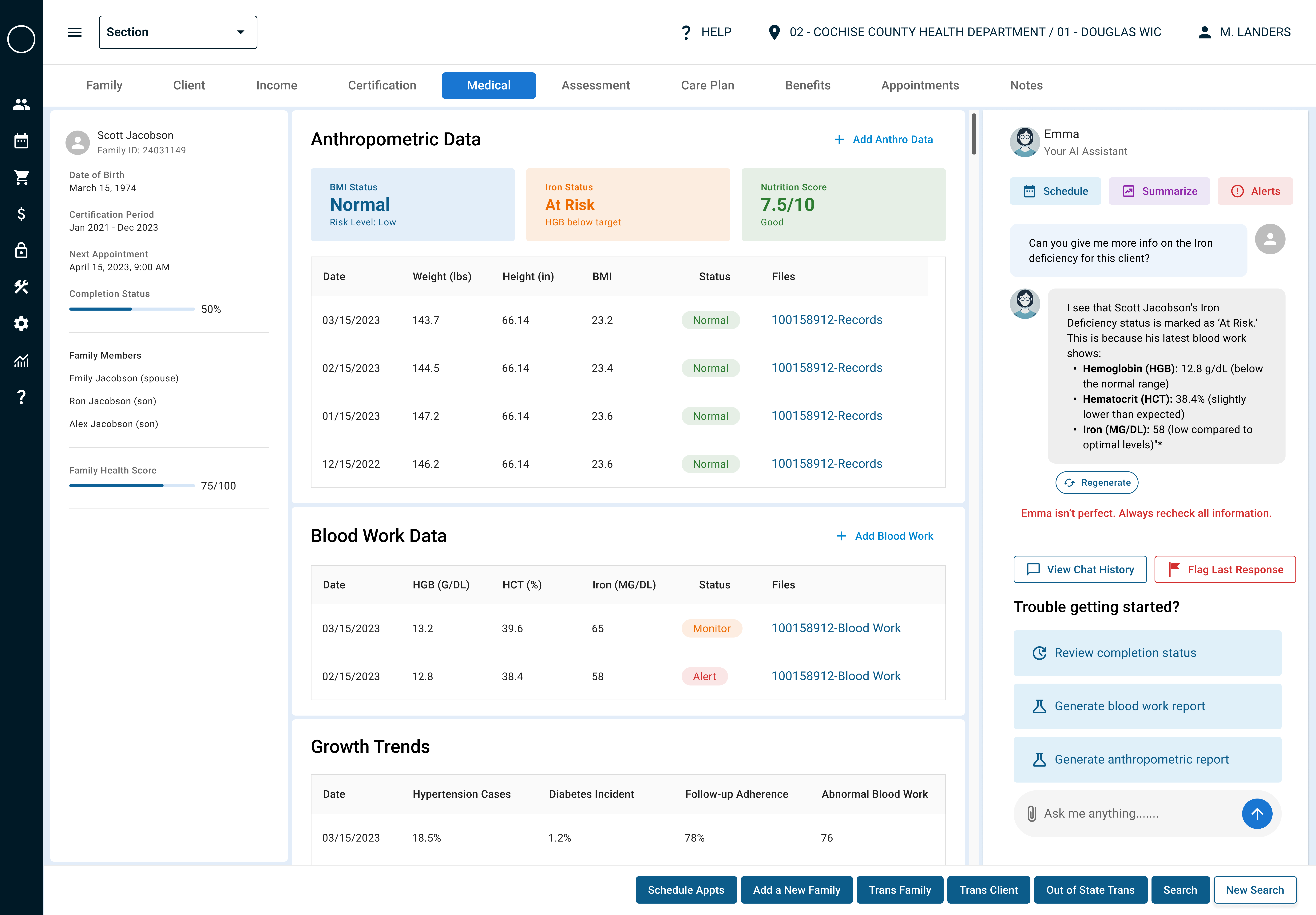
AI-Powered Case Summaries
Emma streamlines case management by automatically summarizing key household details...
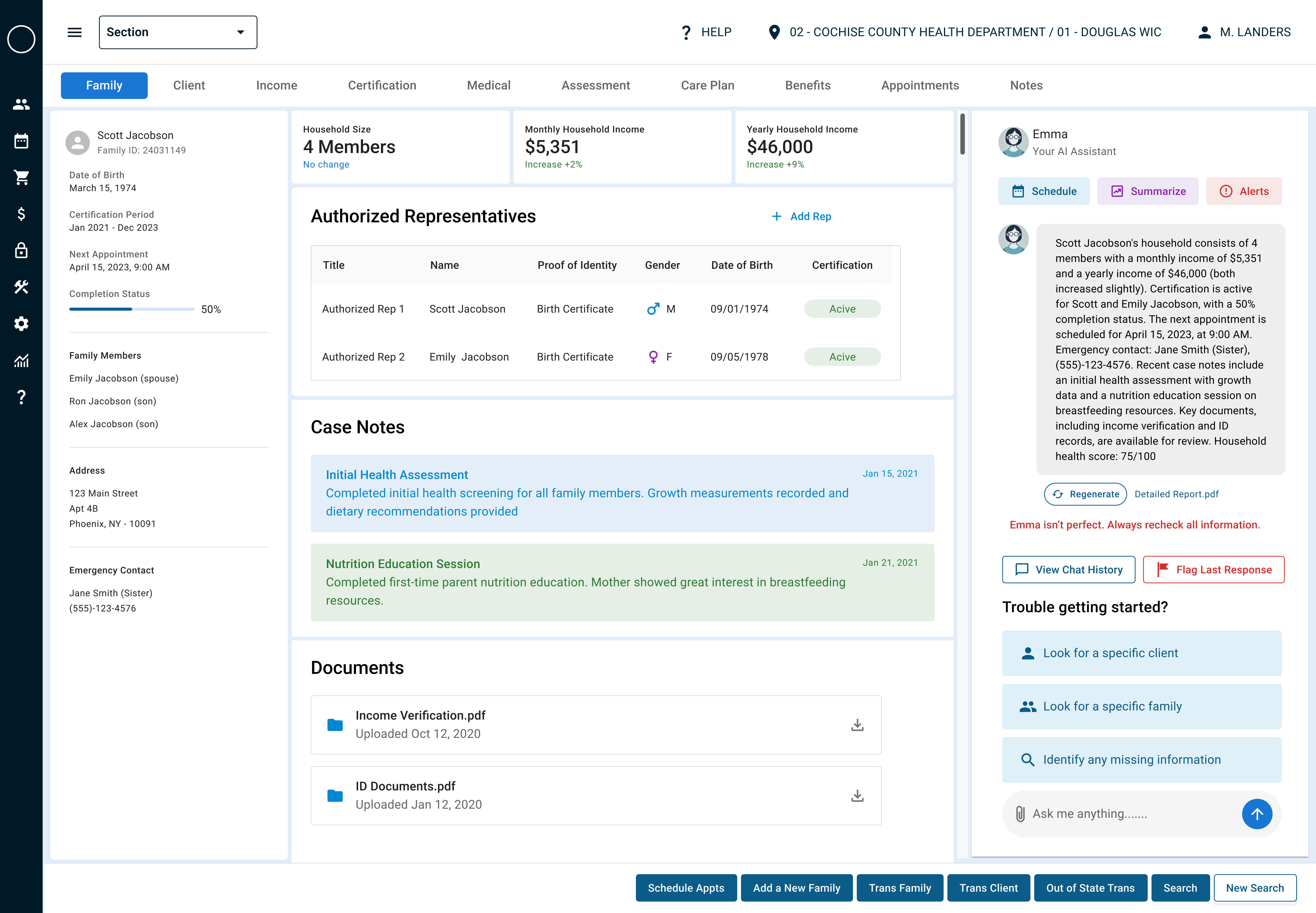
Seamless Appointment Scheduling with Emma
Emma streamlines appointment scheduling by guiding staff through the process with intuitive options...
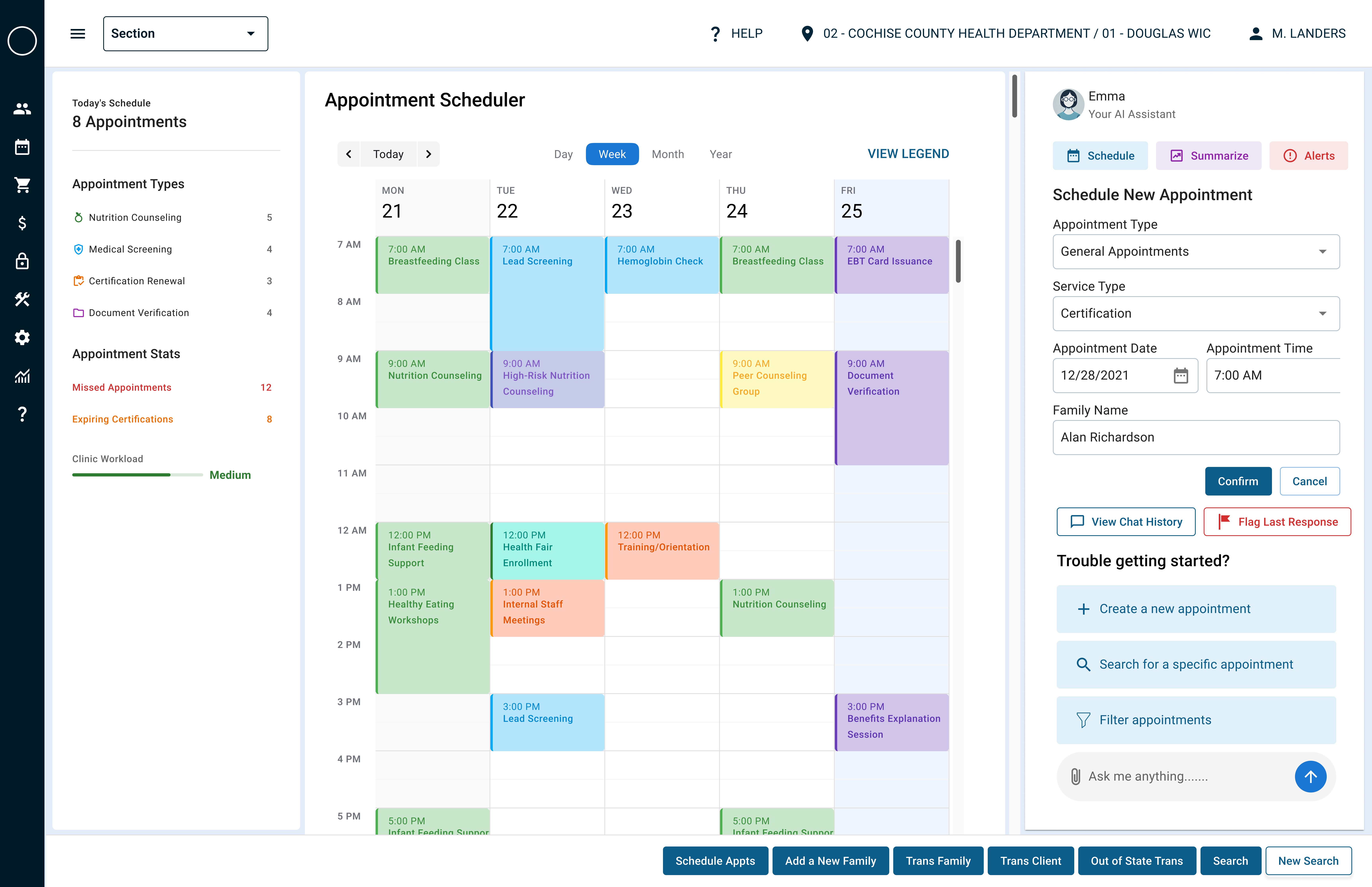
Smart Filtering for Effortless Appointment Management
Emma simplifies appointment tracking with intelligent filtering, allowing staff to quickly sort by type, status, or priority...
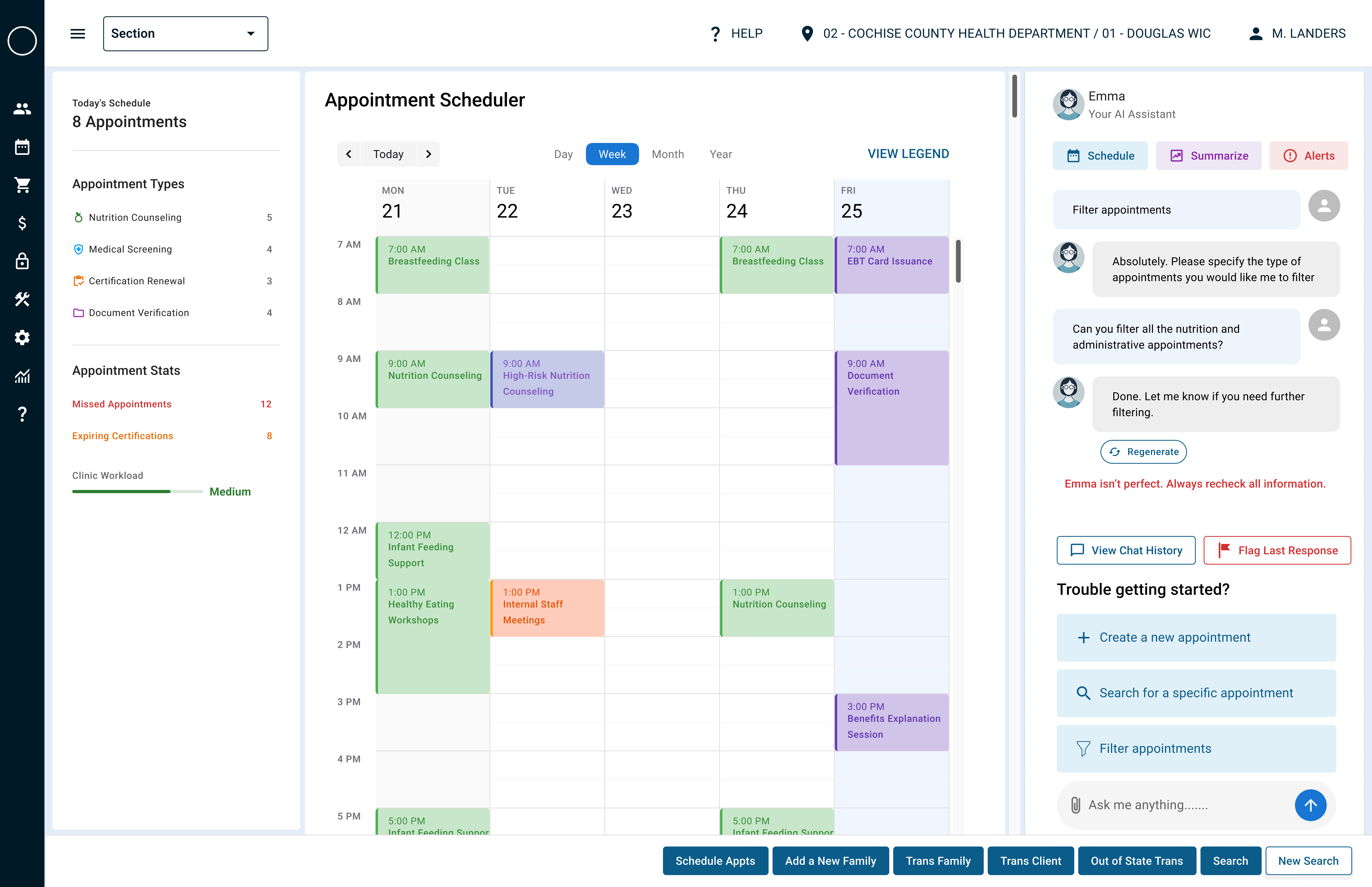
Actionable No-Show Insights for Better Engagement
Emma provides instant visibility into missed appointments, helping staff track no-shows and take proactive steps...
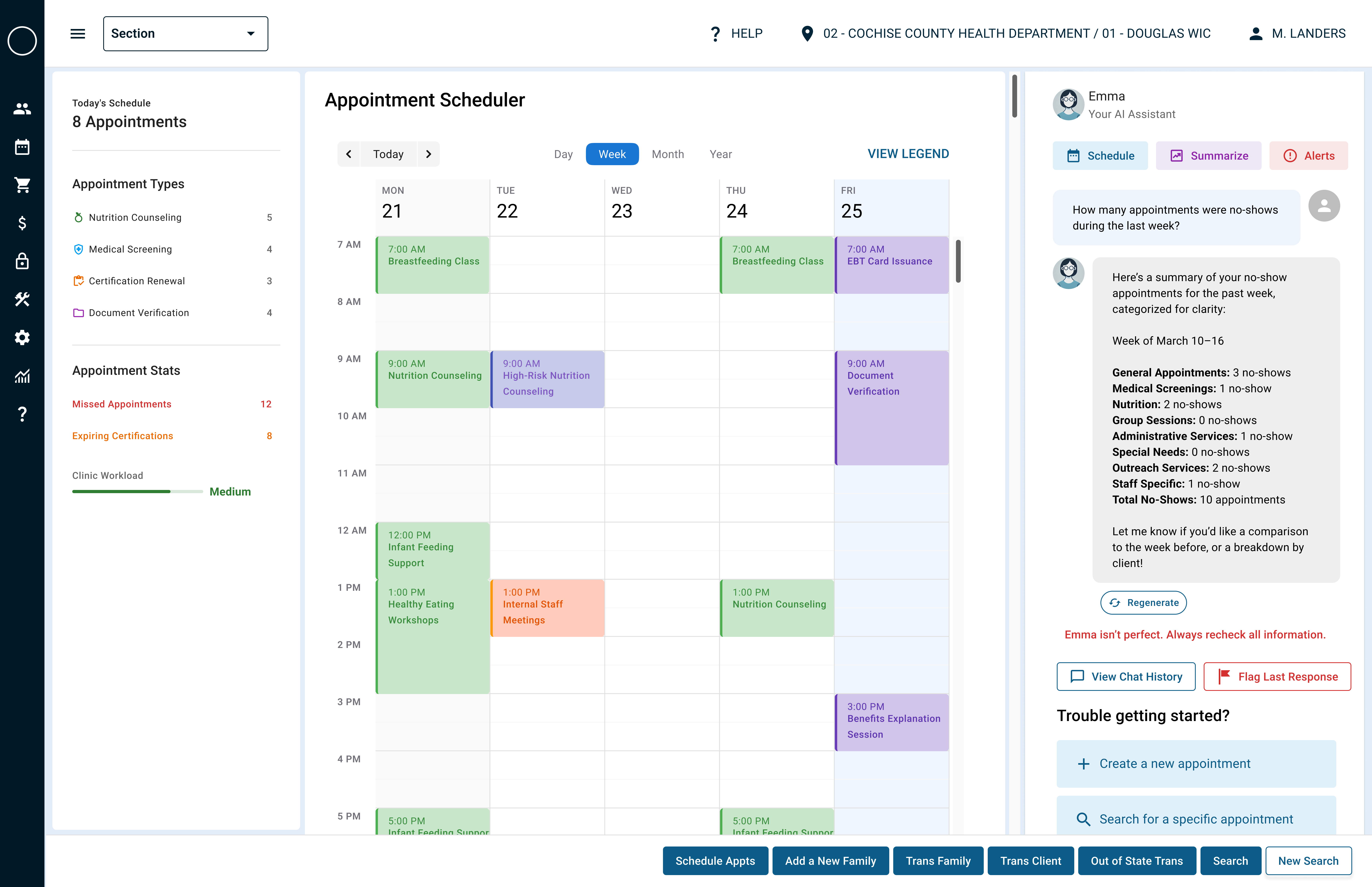
Conclusion
Empowering Humans to
Automate Efficiency
Designing for HANDS AI was an exercise in balancing complexity with clarity. Across family, medical, WIC, and scheduling modules, the goal was never just to streamline workflows — it was to empower human service professionals with tools that feel intuitive, responsive, and unified.
By deeply understanding the real-world constraints of caseworkers and health professionals, this system brings structure to chaos, enabling better care coordination and outcomes.
This project reaffirmed my belief that great enterprise design isn’t about adding more features — it’s about making the right decisions easier, faster, and more human.
Learning Outcomes
- Automated key processes, reducing the manual workload for staff
- Enhanced caseworker productivity by simplifying complex tasks
- Ensured that organizational practices align with regulatory standards
- Transformed interaction with clients, providing timely and personalized services
- Enabled the organization to harness data more effectively
